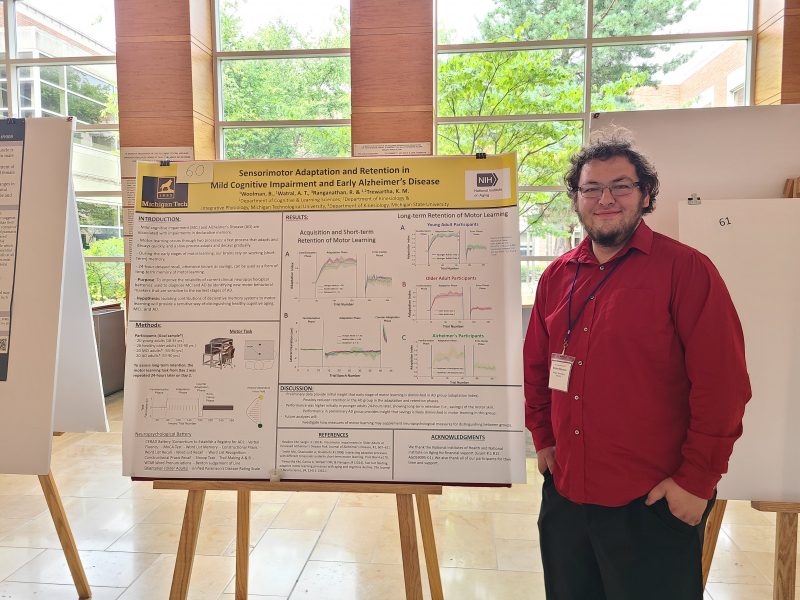Applied Cognitive Science and Human Factors (ACSHF) MS student Brandon Woolman presented his team’s research findings during the Michigan Chapter Society for Neuroscience at Central Michigan University on August 20.
Woolman’s, along with teammates Alexandra Watral (ACSHF PhD candidate), Rajiv Ranganathan (Kinesiology, Michigan State University), and advisor Dr. Kevin Trewartha, research titled “Sensorimotor Adaptation and Retention in Mild Cognitive Impairment and Early Alzheimer’s Disease,” is made possible by grant funding from the National Institute on Aging (NIH).
The study included preliminary data from participants diagnosed with the early stages of Alzheimer’s Disease (AD), and control groups of cognitively healthy older and younger adults. All of which performed a force-field adaption task using a specialized robotic device (KINARM). The team investigated whether the early stages of motor learning are affected by early AD, and whether those patients exhibit additional impairments in short-term (i.e., within the testing session) and long-term retention (after a 24-hour delay) of a newly acquired motor skill.
Participants were instructed to reach for visual targets, and while their arms moved, the robot would apply a velocity-dependent force perpendicular to the direction of the target. The mechanical load hinders smooth movements toward the target, but over time participants
adapt by applying forces to counter the load. Short-term retention of force-field adaption was assessed in a final block of trials on Day 1. Participants returned a day later to perform the same motor task to assess long-term skill retention over a 24-hour delay.
The work aims to determine whether acquisition, short- and long-term retention measures in a motor learning task, can identify differences between early AD and healthy aging. Measuring these differences could aid in the diagnosis of Alzheimer’s Disease in its earliest stages.
For more information and details on related research, see Dr. Trewartha’s Aging Cognition Action Lab website.
